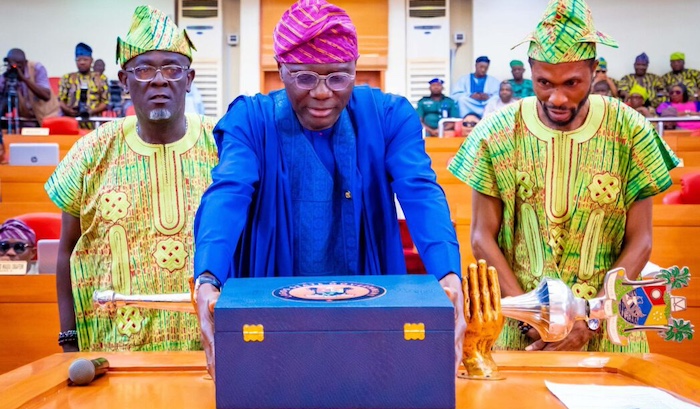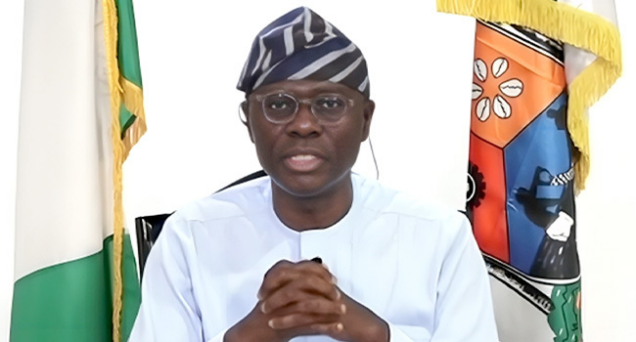The Lagos State Government has reaffirmed its commitment to financing its ₦3.367 trillion 2025 budget without relying on external borrowing, emphasising fiscal responsibility and sustainable economic growth.
Speaking at a press briefing in Ikeja, the Commissioner for Economic Planning and Budget, Mr. Ope George, assured that strategic revenue-generation plans were in place to cover the budget deficit.
He was joined by the Commissioner for Finance, Abayomi Oluyomi, and other top government officials.
According to George, the budget will be funded primarily through internally generated revenue (IGR) of ₦2.230 trillion, capital receipts of ₦111.839 billion, and federal transfers of ₦626.137 billion, bringing total revenue estimates to ₦2.968 trillion. This represents a monthly revenue target of ₦247.331 billion.
The Lagos Internal Revenue Service (LIRS) is expected to contribute 63% (₦1.4 trillion) of the IGR, while other government ministries, departments, and agencies will generate 37% (₦830.177 billion).
The state aims to achieve this by broadening the tax base, leveraging technology, and tapping into revenue opportunities in the informal sector, tourism, real estate, and trade.

Despite the commitment to self-financing, the budget includes a projected deficit of ₦398.662 billion, which will be addressed through internal loans, bond issuances, and other funding sources.
The ₦3.367 trillion budget is structured with a capital-to-recurrent expenditure ratio of 62:38, reflecting a focus on infrastructure development.
Sectoral allocations include Education (₦166.31 billion), Health (₦173.85 billion), Economic Affairs (₦162.47 billion), Environment (₦75.84 billion) and Social Protection (₦32.81 billion)
George highlighted that personnel costs had increased by ₦146 billion compared to the previous year, reflecting the state’s commitment to salary increments to cushion the effects of inflation and fuel subsidy removal.
The budget prioritises massive infrastructure renewal, with key projects across Lagos, including road construction in Badagry, Alimosho, Ikorodu, Ikeja GRA, and Lekki-Epe Expressway (Phase IIA)
It also includes the completion of Abule Egba, Ajah, and Iyana-Ipaja bus terminals; the construction of the Opebi Link Bridge to Maryland, the rehabilitation of the Lagos-Badagry Expressway, progress on the Fourth Mainland Bridge and Lekki-Epe Airport Road, and the expansion of the Lagos Rail Mass Transit System (LRMT) from Mile 2 to Okokomaiko
Additionally, the government will develop the 68km Green Line rail from Marina to the Lekki Free Trade Zone, complete 13 new jetties, and finish stadium projects in Ikorodu, Badagry, Epe, Ifako-Ijaye, Ketu, Ibeju-Lekki, Sari Iganmu, and Ajeromi to promote youth development.
George emphasised that the 2025 budget is more than just figures—it is a blueprint for long-term stability and progress.
It is structured around five key pillars: infrastructure and Environmental Sustainability; Economic Diversification; Social Inclusion and Human Capital Development; Governance and Institutional Reforms; and Fiscal Responsibility
With a strategic focus on economic growth, social equity, and environmental sustainability, the Lagos State Government aims to build a resilient and thriving metropolis for future generations.


